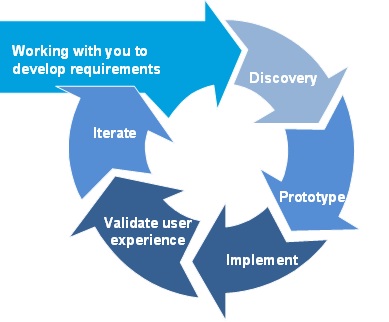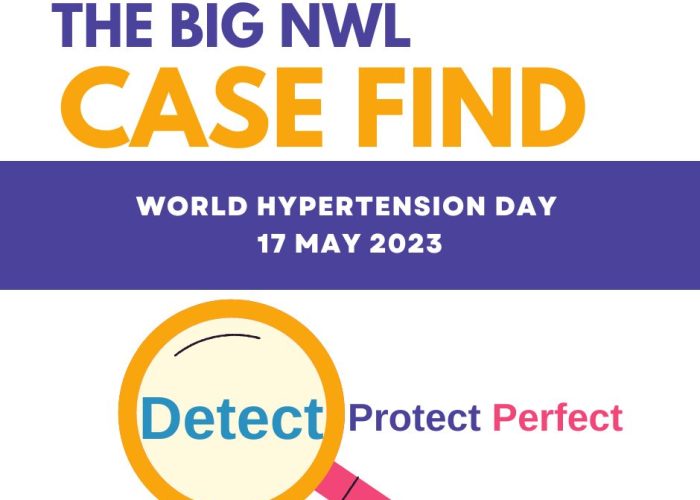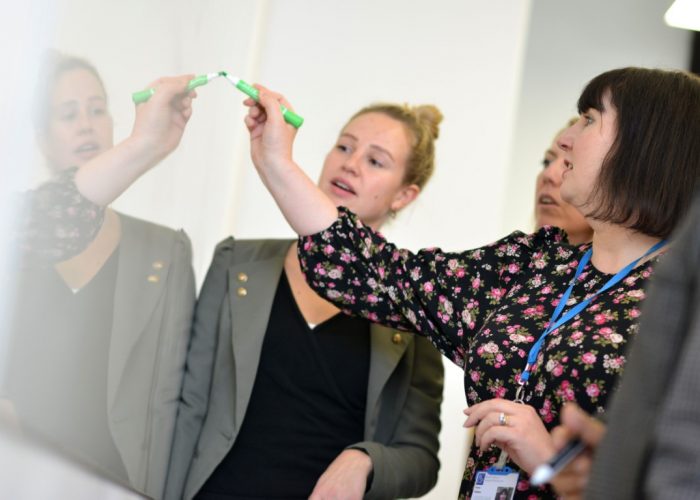 Andi Orlowski, ICHP’s Deputy Director of Business Intelligence, explains why iteration and flexibility are so important when it comes to working with data.
Andi Orlowski, ICHP’s Deputy Director of Business Intelligence, explains why iteration and flexibility are so important when it comes to working with data.
With data it is hard to know what you don’t know.
Often it is only after you start looking into data that you realise the potential insight it could give to your work; that frequently the initial question you have asked from the data has only barely scratched the surface. This is especially evident in the field of population health analytics where the landscape is such a complex one.
Which is why, here at ICHP, we stress the importance of an iterative process. We have brilliant data experts in our team who love exploring collaboratively and translating the power of data. We aim to work together, from the very beginning, with our customers to really understand how best we can use the data and understand the best questions we need to be asking.
For us to get the best outcomes we need to be able to segment populations in the most meaningful way for that particular system, and this takes time. It often takes repeated enquiries and lots of iterations before we start to discover the really good stuff!
Our ongoing work with the Buckinghamshire Integrated Care System (ICS) is a great example of this iterative approach.
We were approached by Daniel Leveson, Deputy Director of Strategy at Buckinghamshire Healthcare NHS Trust, who saw the benefit that population segmentation and risk stratification could have when it came to designing services that are fit for the future.
Daniel said: “We’re trying to come up with a different approach to designing our health and care system and, for me, that begins with having a really good understanding of the population’s needs. How does the population in this area currently use healthcare? What are the significant health needs? Which parts of the population could benefit most from integrated care?”
He asked us to focus on a population of around 55,000 people within Buckinghamshire who fall under the Medicas Primary Care Network and we began working together in November to develop a dashboard, using secondary care data to help understand people’s use of secondary care. The ICS wanted to gain a better understanding of which patients were driving high demand for emergency care, and also high costs generally.
Analysis took place at county, GP cluster, and individual practice level, and looked at common conditions, the combinations of these conditions, which patients are the most costly and who is most likely to be admitted as an emergency.
The initial cut of data was helpful, but it soon became clear that we would need to delve further into it to refine the information and deliver something of maximum value to the ICS.
Daniel explained: “Perhaps naively, I thought the work would all be done within a month but what I’ve learnt is that the initial work we asked for was really the starting point. Once we had the initial data what we had to do was pick the areas that warrant more work and understand what impact we can have as a system on these groups.
“It probably throws up more questions than answers, but at least we are asking the right questions.”
Four months on we are continuing to work closely with Buckinghamshire ICS and they have established a small working group who we meet regularly, which includes GPs, commissioners, mental health and social care. Working with stakeholders in this way means we can extract meaningful, actionable insights from the data, which help drive the discussions around what the system’s main areas of focus should be.
Daniel said: “The data has helped enable people to think differently, to focus on things in terms of population, rather than services. It really helps to get people around the table. The relationship with ICHP works because there is a real shared desire to look at how things can be improved, and to do the very best for patients.”
Working in this way, pausing regularly to assess what we’ve discovered through data and then building on these learnings, means that we have time to reflect and reiterate to meet the needs of the local population.
It’s an approach which we are extremely proud of and one which has led us to become national leaders in providing support for integrated health systems and which is recognised by our place on NHS England’s Health Systems Support Framework.
If you’re interested in finding out more about how ICHP could work with your integrated care system contact andi.orlowski@imperialcollegehealthpartners.com



